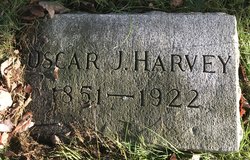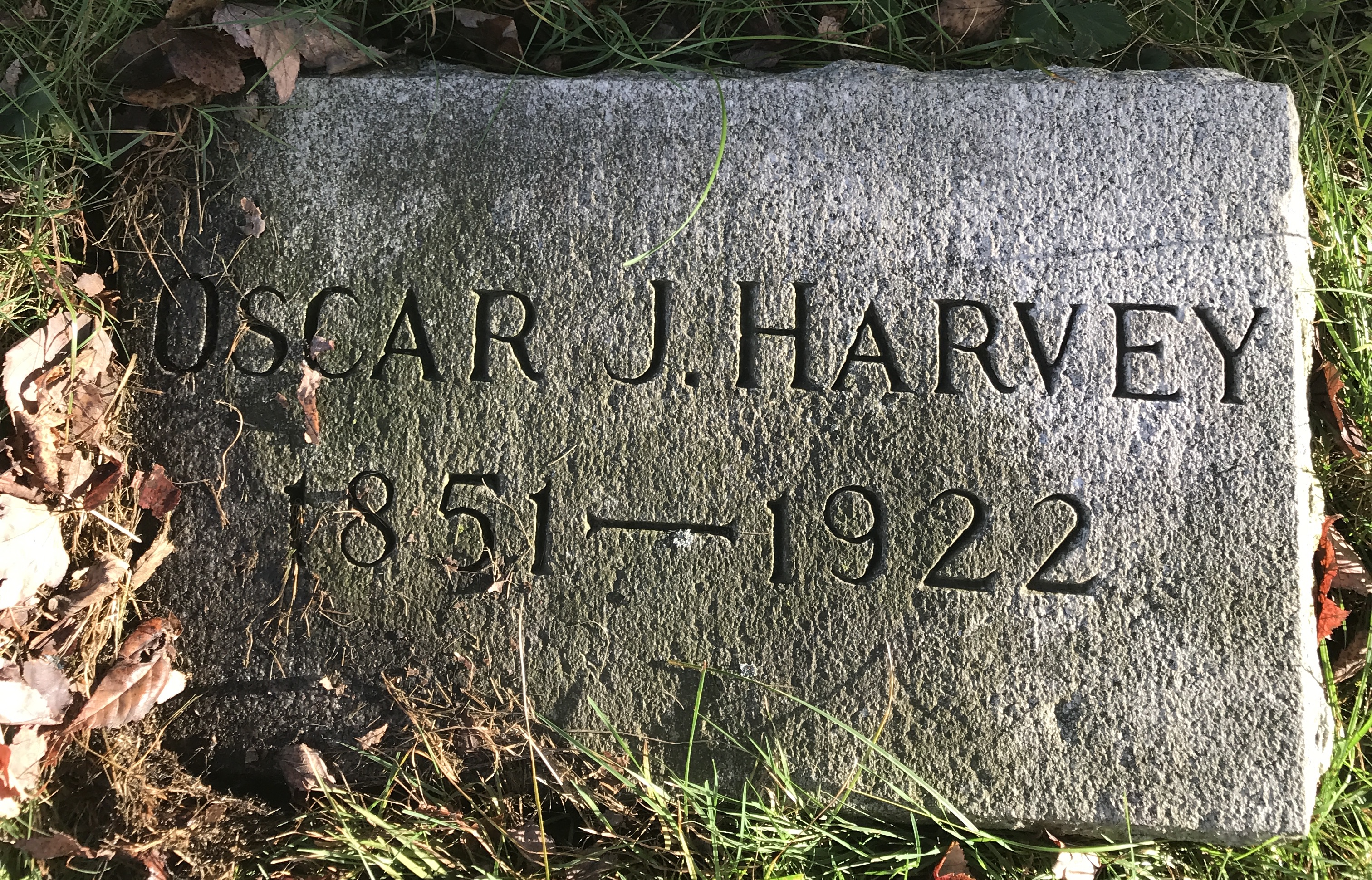Author:
Oscar J. Harvey was nationally known as the historian of Wilkes-Barre and Wyoming Valley, having penned several books on Wilkes-Barre and the Wyoming Valley, as well as Histories of the Irem Temple and the Ancient Free and Accepted Masons, Lodge No. 61.
He also contributed articles to the "Keynote", a leading journal of New York City, devoted to music and drama, and to the "Magazine of American History", among other publications.
Teacher:
In July 1872, he was elected professor of mathematics and higher English at Wyoming Seminary.
Philanthropist:
He founded "The Harvey Prize for English", which awarded $20 in gold each year to a junior at Lafayette College who excelled in English studies.
Scholar:
He entered the freshman class at Lafayette College in Sep. 1867, a few days after his 16th birthday, and graduated with a B.A. in 1871. He was elected historian of his class for life, and in 1874 he received the degree A.M.
Lawyer:
He entered the law office of C.E. Wright and I.P. Hand and in October, 1875, passed his examination for admission to the bar, and was admitted to the bar of Luzerne County on May 16, 1876.
Orator:
He was a director of the Masonic Benefit Association since 1879, a member of the Wyoming Historical and Geological Society (now the Luzerne County Historical Society), and a counselor of the American Institute of Civics, freely giving of his time to educate people about the history of the Valley.
Soldier:
On November 28, 1878, Mr. Harvey was elected captain of the "Wilkes-Barre Fencibles", which later became Co. B of the Ninth Regiment of the Pennsylvania National Guard (P.N.G.). Captain Harvey remained in command of the company until October 17, 1879, when he became commissary of the regiment until July 11, 1881.
Statesman:
He later occupied the post of chief of a division in the office of the third auditor of the United States treasury department.
Author:
Oscar J. Harvey was nationally known as the historian of Wilkes-Barre and Wyoming Valley, having penned several books on Wilkes-Barre and the Wyoming Valley, as well as Histories of the Irem Temple and the Ancient Free and Accepted Masons, Lodge No. 61.
He also contributed articles to the "Keynote", a leading journal of New York City, devoted to music and drama, and to the "Magazine of American History", among other publications.
Teacher:
In July 1872, he was elected professor of mathematics and higher English at Wyoming Seminary.
Philanthropist:
He founded "The Harvey Prize for English", which awarded $20 in gold each year to a junior at Lafayette College who excelled in English studies.
Scholar:
He entered the freshman class at Lafayette College in Sep. 1867, a few days after his 16th birthday, and graduated with a B.A. in 1871. He was elected historian of his class for life, and in 1874 he received the degree A.M.
Lawyer:
He entered the law office of C.E. Wright and I.P. Hand and in October, 1875, passed his examination for admission to the bar, and was admitted to the bar of Luzerne County on May 16, 1876.
Orator:
He was a director of the Masonic Benefit Association since 1879, a member of the Wyoming Historical and Geological Society (now the Luzerne County Historical Society), and a counselor of the American Institute of Civics, freely giving of his time to educate people about the history of the Valley.
Soldier:
On November 28, 1878, Mr. Harvey was elected captain of the "Wilkes-Barre Fencibles", which later became Co. B of the Ninth Regiment of the Pennsylvania National Guard (P.N.G.). Captain Harvey remained in command of the company until October 17, 1879, when he became commissary of the regiment until July 11, 1881.
Statesman:
He later occupied the post of chief of a division in the office of the third auditor of the United States treasury department.
Family Members
Sponsored by Ancestry
Advertisement
Explore more
Sponsored by Ancestry
Advertisement






